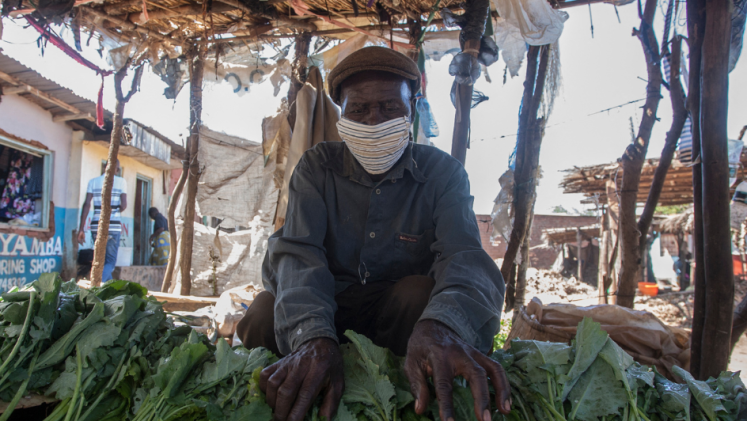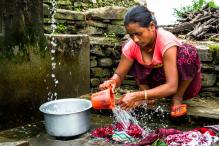The COVID-19 pandemic has affected societies to their core, impacting the most vulnerable the hardest. In many places, COVID-19 and concurring hazards have worsened challenges in the informal sector. This sector encompasses off-the-grid economic activities and employment outside formal government regulations and taxation. Common in developing countries, it includes unregistered and unregulated work such as street vending or selling small-scale farming products. Workers lack job security and legal protections, presenting significant challenges during disasters.
Here, we present five aspects from research conducted by UNU-EHS in the CARICO SADC project, on how COVID-19 amplified risks in the informal sector across the Southern African Development Community (SADC) region. We provide insights into why it is important to leave no one behind in our efforts to strengthen resilience towards future hazards and shocks in the sector and for those dependent on it.
The informal sector represents a significant part of the global economy and labour market
Data from the International Labour Organization (ILO) shows that in 2022 almost 60 per cent of the world’s employed population is in the informal sector, with Africa having the highest share. Its importance is particularly notable in the SADC region, where it provides crucial income and employment opportunities, filling gaps in the formal job market. Encompassing activities such as agriculture, industry and services, the sector is a key component of intra-SADC trade.
The COVID-19 pandemic revealed and amplified vulnerabilities in the informal sector
Containment measures imposed by governments in response to COVID-19, like lockdowns and trade restrictions, severely impacted the informal sector, exposing and further intensifying vulnerabilities. They resulted in widespread job losses and income disruptions, deepening poverty and widening inequality. Additionally, health challenges surged, with restricted access to medications and health care and an increase in mental health issues due to uncertainty and stress. Impacts were particularly severe for women in the informal sector, with an increase in domestic violence and women often having to take on unpaid labour like childcare and household duties. The new challenges that these impacts presented highlight the importance of acknowledging and addressing pre-existing vulnerabilities through inclusive policies specific to the informal sector's needs, coupled with targeted improvements in living conditions and access to health care.
Informal networks play a key role in community-based disaster responses
Responding to the heightened challenges during the COVID-19 pandemic, informal networks emerged across the SADC region, which have been essential in distributing resources and sharing vital information. Community leaders and faith groups helped in clearing up vaccine misinformation and encouraging adherence to health measures, making communities healthier and safer. These grassroots efforts, often swift and more adaptable than formal government responses, fostered unity, trust and collective responsibility. Governments should recognize, support and integrate informal networks into broader emergency response and community development strategies.
Clean water and sanitation facilities are crucial in disaster risk prevention
Investing in Water, Sanitation, and hygiene (WaSH) infrastructure in informal settlements is a vital step to enhancing community well-being and preparedness for future pandemics. Improved access to such facilities not only reduces exposure to health risks, but significantly enhances residents’ quality of life. Robust WaSH infrastructure is key for disaster risk prevention, equips communities to maintain essential hygiene practices and mitigates the spread of diseases. It ensures secure and healthy living conditions, building long-term resilience beyond pandemic preparedness.
Scaling up social protection systems in the informal sector is necessary.
The pandemic has highlighted the need for robust social protection systems to shield citizens, including those in the informal sector, from economic and health risks, also in the SADC region. Recognizing the sector's significant economic contributions, and the persisting gaps in social protection in the sector, governments should develop inclusive policies that effectively support and integrate the informal sector into the broader economic framework of the SADC. The way forward demands efforts to transform challenges into opportunities for growth and resilience, ensuring a more inclusive and sustainable future for the informal sector in the SADC region.



